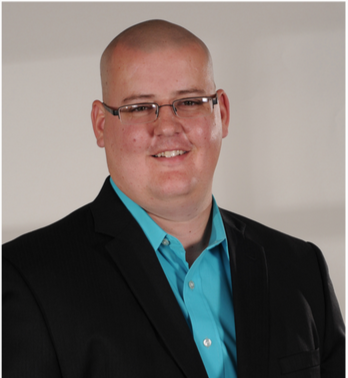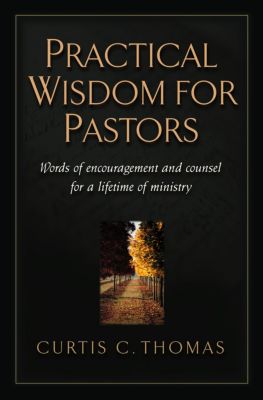
The recklessness with which we approach ministry makes the work harder and can hinder people from coming to Christ and growing in maturity.
By Luke Holmes
A new world record was recently set for marathons. A 50-year-old runner known as “Uncle Chen” finished a marathon in China in under three and a half hours. That might not seem impressive, as the world record time is about two hours. What made this record unique was that Uncle Chen did it while chain-smoking an entire pack of cigarettes. He took something that was already hard and made it almost impossible. But through hard work and stubbornness, I guess, he managed to do it.
There are many hard things in life. It’s hard being a parent, a spouse, or a teacher. There are jobs and careers in the world that are hard for all different reasons—not to mention all of the hobbies that are dangerous and difficult. Some things are just hard to accomplish in and of themselves—like a marathon. But how often do we, like Uncle Chen, take something hard and make it harder than it needs to be?
Making ministry difficult
We can be especially tempted to do this in ministry. Pastoring a church of any size is one of the hardest things anyone could do. Preaching to people from newborns to the elderly, caring for souls, and leading an organization of volunteers are just some elements that make pastoring hard. On top of all that, pastors are trying to lead people to Christ in a world that is increasingly hostile to the gospel. That means pastoring gets harder and harder each day. But I can admit, sometimes pastors make their work harder than it should be.
It’s not by chain-smoking like the marathoner, although there might be some pastors who feel driven to do that! Ministry is often made more difficult through our foolishness and sinfulness. The recklessness with which we approach the ministry not only makes the work harder but can also be a hindrance to people coming to Christ and growing in maturity. But by God‘s grace, we can remove those obstacles in order to do the best we can.
How does a pastor make a ministry harder than it needs to be?
1. He refuses to ask for help
It could be out of pride, insecurity, or ignorance, but failing to ask for help means ministry is going to be harder than it should be. A lack of friendships could be a part of this. A recent study from Lifeway Research found 69% of pastors admit to struggling with friendships. Those are the friends we turn to for advice. Sometimes it can be going to a person and asking for help. Other times, it could be cracking open a book and learning from those who have gone before us.
“Admitting you need help should be one of the main tools of any ministry leader.” — @lukeholmes Click To TweetAny leader knows the feeling of being in over your head. But what you do at that moment is what separates good from great leaders. The Bible promises us if we ask for wisdom, we can have it. Good leaders aren’t afraid to go and ask for help or to admit they don’t have it all figured out. Admitting you need help should be one of the main tools of any ministry leader.
2. He doesn’t pray
This could go right in with the point above, but prayer is not just asking for help. Prayer is admitting our total reliance on God for the task before us. Nearly 3 in 4 pastors admit to struggling with consistency with personal prayer. It can be hard to spend so much time praying for others or being in public settings. And often a pastor’s prayer life gets overlooked. Prayer can become an afterthought or merely perfunctory. But a failure to pray results in your ministry being harder than it needs to be.
A pastor who makes the point to spend time in prayer will not find all his problems magically go away. But he will find God provides the strength to get through them. God has promised us he will supply our needs and do exceedingly more than we can ask or think (Ephesians 3:20). Pastors need to realize their incompetence in the task before them and go to God in prayer. A ministry leader’s prayer life should not only arise out of desperation but out of their realization of God’s power.
3. He doesn’t make time for his own walk with God
Leaders in the church can be so busy helping others follow God that they neglect to do so themselves. This doesn’t just happen with neglecting prayer. It can happen with Bible reading and other spiritual disciples as well. More than two in three pastors admit to having difficulty trusting God and spending time in Bible reading outside of sermon prep.
One of the hardest things to do as a pastor is to maintain a daily devotion time. It might seem counterintuitive, but in the midst of sermon prep and study for others, it can be difficult to set apart time for God to speak to them, without worrying about others. One of the most important things a pastor or ministry leader can do is set aside time for their own spiritual growth. Setting aside time each day for prayer and study is one of the easiest ways to make the job of ministry easier.
“One of the most important things a pastor or ministry leader can do is set aside time for their own spiritual growth.” — @lukeholmes Click To TweetMinistry leaders are called to “run with endurance the race that lies before us” (Hebrews 12:1, CSB), meaning we need to make sure we lay aside the things that make that race harder. A pastor who doesn’t put God first in his life and admits his dependence on Christ is as foolish as a chain-smoking marathon runner. Except, for a ministry leader, the consequences are eternal. Trying to do ministry without the power and resources of Christ is like trying to carve Mt. Rushmore with a pocket knife. You might eventually get it done, but there are greater tools at your disposal. How much more so when the power of the risen Christ is at our fingertips? Don’t make ministry harder than it already is. Admit your need for Christ, fall on your knees in prayer, and then call someone to walk alongside you.
For permission to republish this article, contact Marissa Postell Sullivan.

Luke Holmes
Luke is husband to Sara, father to three young girls, and, since 2011, pastor at First Baptist Church Tishomingo, Oklahoma. He’s a graduate of Midwestern Baptist Theological Seminary and can be found online at LukeAHolmes.com.











